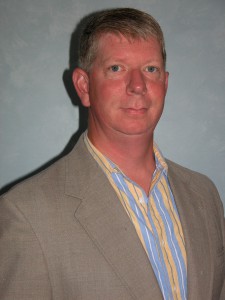Not Your Grandparents’ Funeral
By Jeff Staab

When I first started working as a funeral director it was 1984 on Long Island, New York and the funerals were very traditional. I worked in a funeral home that served mostly Italian Catholic communities. That year we did about 350 funerals in two locations: business was good.
Four sets of calling hours were the norm at that funeral home and on the third day, off to the church and on to the cemetery. Everyone was embalmed and viewed. Flowers came by the truck load. It was all pretty routine and the funerals were not very complicated. Profits were good! Cremation was some of new fad! Nothing was biodegradable. The funeral home offered 38 full-sized caskets and just 1 cremation urn. It wasn’t till many years later I would realize that those days during my first years in the early 80’s were some of the heydays of funeral service in this country.
As funerals became more and more complicated and complex, profit margins shrank and funeral directors hoped for the return of tradition. I was often accused by the “Boss” of complicating funerals and creating more work. Meanwhile, I felt that I could never do enough for the families I served. Looking back, I just listened well and acted more like an event planner then funeral director. Now this attitude is all the rage. Wow, I was actually ahead of my time!
These days funeral professionals are wearing more and more hats. As the baby boomer generation arranges funerals their parents, many come to the funeral home with preformed ideas they got the night before on the internet. Some have done so much research and garnered so much advice, that they don’t even think they need a funeral home’s help at all. The last thing most want is a traditional funeral. How much for a direct cremation is the one thing funeral directors dread to hear, yet it is now often the first question asked.
Where did funeral homes miss out on this development? I’m not exactly sure, but I do know that the style of being an order taker at the arrangements was the beginning of the end. Listening is the most important trait of a funeral director, as I was taught in school. It’s still important, but I think engaging people in conversation can sometimes work better. It’s not even enough to just point out all the new options available today. I think you really need to be able to convey the value of the options in a way that people can relate to. It’s time to be proactive and create new traditions. The American funeral needs our help. Simply going along with change won’t save the funeral profession. I hope that the funeral profession will rise up to the needs of the new Americans and help them celebrate their lives in ways that are meaningful.
 It’s not about the products, it’s about the experience. It’s about how the experience makes clients feel. People still want to show how much they care. They are more spiritual then ever and they want to participate in the event. Lets help them do it well. The result will be new heydays for funeral service. Let the products support the services.
It’s not about the products, it’s about the experience. It’s about how the experience makes clients feel. People still want to show how much they care. They are more spiritual then ever and they want to participate in the event. Lets help them do it well. The result will be new heydays for funeral service. Let the products support the services.
How can funeral homes add value to the services they provide? How can one funeral home stand out from the competition? When people ask each other, “how was the funeral?”, what is the response, what is thought about before the response. “The Funeral of Course” Translation – the ceremony and how it made them feel.
Most of the other stuff is just the mechanics and fluff of the funeral, yes I said fluff. Was your funeral home a good janitor of the dead, how nice the funeral home and staff looked and acted. Were they helpful and considerate? They better be! I hope they offered allot of guidance and options as well. All these things are important, but what do the people remember “The Funeral of Course”! Who does the funeral? I should say who officiates the funeral, We don’t. The funeral directors gave the funeral to the clergy many years ago. The funeral home just facilitates and organizes it in most cases. The ceremony and the way it makes people feel is the real value. Priceless!.
So how do we as funeral professionals take back the funeral?, one word “CELEBRANTS”. Become one or team up with one. Either way get involved with celebrant style funerals and you will be one step in the right direction with saving the American funeral. Unlike clergy, celebrants want your help. They want your involvement and they  will work with you. Most important, a Celebrant style of funeral will reflect a positive light on your reputation to do funerals right!. I took an course from the Celebrant Foundation and Institute. They taught me more about funerals in a online six month course then I learned from two years of mortuary science and working twenty years as a “Funeral Director”.
will work with you. Most important, a Celebrant style of funeral will reflect a positive light on your reputation to do funerals right!. I took an course from the Celebrant Foundation and Institute. They taught me more about funerals in a online six month course then I learned from two years of mortuary science and working twenty years as a “Funeral Director”.
The Funeral Celebrant’s mission is to create a ceremony that reflects the wishes, beliefs, cultural background and values – religious or non-religious – of your loved one and your family. You have complete choice of and final approval over the ceremony. Nothing is imposed on you.
Above all, a Celebrant funeral reflects the wishes of the family and the deceased. A Celebrant funeral honors death and celebrates life. Some of the teachings of the Celebrant course includes:
- Funeral Ceremony Structure
- Ceremonies for Committal of the Body
- The Eulogy
- Interviewing Clients and Working with Families
- Special Issues: Ceremonies for Infants & Children, Violent Deaths, Suicide
- Comparative Funeral Rituals
- Performing Funerals
- Working with the Funeral Industry
- Ceremonies for Animal Companions
- Ceremonies for the Terminally Ill/Pre-Need Funeral Ceremony Clients
- Healing, Survival, and End-of-Life Celebrations
It is proven that providing the services of Celebrants will result it many pre-arrangements.
 To learn how your funeral home can offer the services of a certified Celebrant, Contact The Celebrant Foundation and Institute. Email: information@celebrantinstitute.org
To learn how your funeral home can offer the services of a certified Celebrant, Contact The Celebrant Foundation and Institute. Email: information@celebrantinstitute.org
Call 973.746.1792 Visit www.funeralcelebrantceremonies.com
